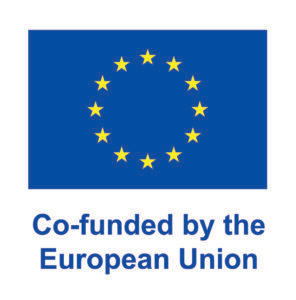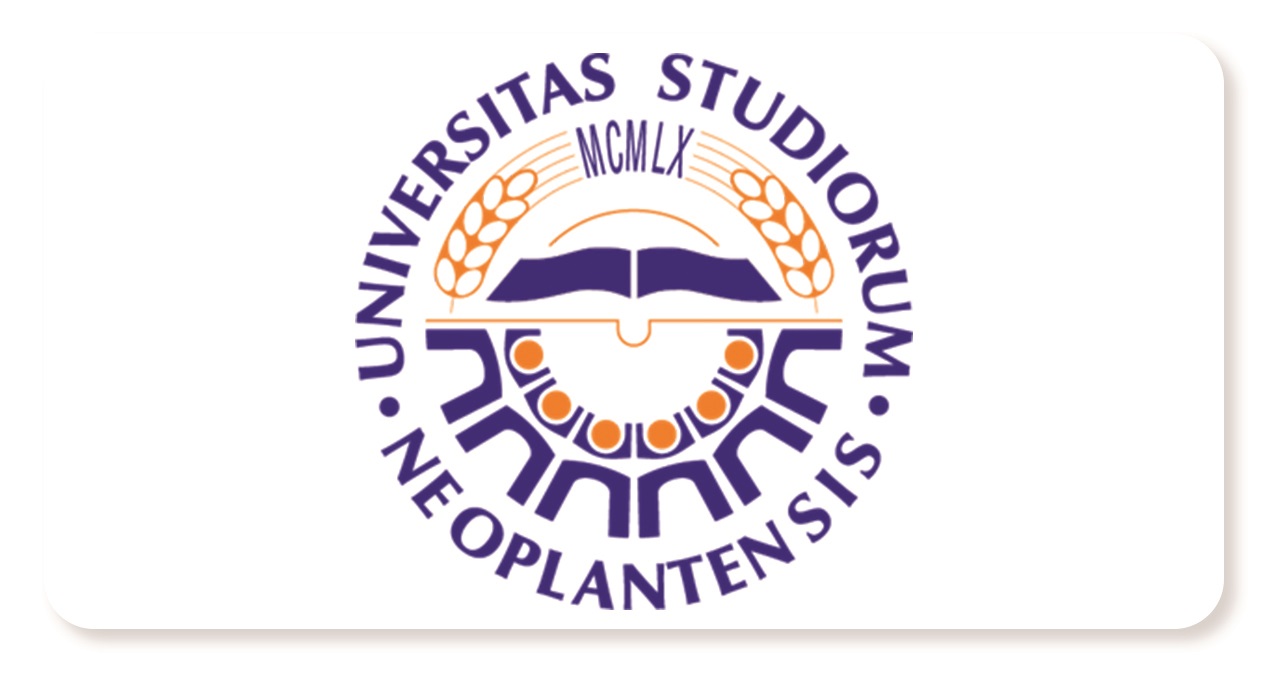
UNIVERZITET
U NOVOM SADU
U NOVOM SADU
The University of Novi Sad, with around 50,000 students and 5,000 employees, is one of the largest educational and research centers in Central Europe. It belongs to the group of comprehensive universities, which are characterized by providing nearly all fields of science and higher education.
The University of Novi Sad offers 350 accredited study programs at the level of Bachelor, Master, Specialist and Doctoral studies, carried out at its Faculties and within the University Center for Interdisciplinary and Multidisciplinary Studies and Research. The study programs are modern and up-to-date with the latest developments in science and research. Along with the Faculties and the Center, three Scientific Institutes have a significant role in creating a solid scientific base for the process of continuous modernization of the educational offer.
The University of Novi Sad has a well-developed research infrastructure and great potential for innovation. The Central Library and the Faculty and Institute libraries offer a rich array of publications that cover all relevant scientific areas and enable access to large electronic databases. Resulting from a special agreement on cooperation, researchers, professors and students have access to the Matica Srpska Library, the oldest Serbian scientific and cultural institution, founded in 1826, which offers more than three million publications. The University encompasses around 250 laboratories. Of special significance to the strengthening of innovativeness is the Technology Park of the University of Novi Sad. With the support of the Faculty of Technical Sciences, around 140 start-up and spin-off companies have been founded, mainly in the IT sector, employing young engineers who graduated from the University of Novi Sad. Some of these companies implement projects for large international corporations and have contributed to Novi Sad becoming recognized internationally as a “Software Valley”. Project teams and prominent researchers from the University of Novi Sad have been the recipients of numerous international and national awards for best technical innovations.
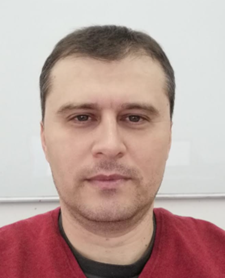
Marinko
Maslarić
PhD, Assoc. Prof.
MARINKO MASLARIĆ is Associate Professor at the Novi Sad University (Serbia). He graduated as MSc in logistics management and defended his PhD thesis in transport engineering. He is employed at the Faculty of Technical Sciences since 2005 where he teaches courses on Intermodal Transport and Supply Chain Management at the Department for Transport and Traffic Engineering. His main research fields are: supply chain management, logistics, transport engineering, optimization and simulation in logistics. He has been granted by various EU programmes for scholarships to perform mobility in a number of EU universities from Slovenia, Italy, Finland, Slovakia, Poland, Czech Republic, The Netherlands, Hungary, Croatia, Romania, Bulgaria. He was included in several national scientific projects financed by the Serbian Ministry of Education and Science, as well as several international projects funded by H2020, Interreg, COST, Visegrad, and CEEPUS program. He is the author of more than 80 scientific papers.
Linkedin: https://www.linkedin.com/in/marinko-maslaric-6058576/
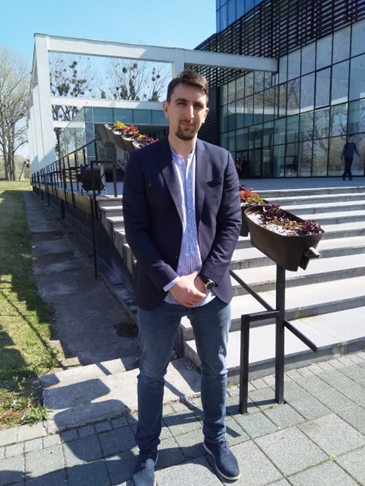
Dejan
Mirčetić
PhD
DEJAN MIRČETIĆ obtained his PhD at the University of Novi Sad, in the area of time series forecasting & supply chain analytics. Dejan published more than 40 scientific papers and the inspiration for his papers is majority driven by real problems in contemporary business & industry. Moreover, he served as the supply chain analyst for several logistics companies, where he led teams for designing machine learning solutions for optimizing supply chains. Besides, Dejan is a member of various scientific committees and commercial projects founded by different programs (Horizon, 2020, Interreg, COST, Visegrad, CEEPUS, USAID and Erasmus plus). For his scientific research, he has received several rewards, among them the prestigious Sakura reward from his excellency Japanese ambassador in Serbia Toshio Cunozaki and the Japan Tobacco International company. Currently, he is a member of a USAID humanitarian project, with a strong wish and desire to create the solution that will improve everyday life of people in Africa. Accordingly, he is in charge of developing a supply chain AI solution to enhance the healthcare system.
Linkedin: https://www.linkedin.com/in/dejan-mircetic-9b03b896/

Svetlana
Nikolicic
PhD, Assist. Prof.
SVETLANA NIKOLICIC is an Associate Professor at the Faculty of Technical Sciences - Department for Traffic and Transportation, University of Novi Sad, Serbia. Her Field of Academic Expertise is logistics and intermodal transportation. Her research interests are: the logistics organization in company, modelling and improvement logistics processes and logistics performances in the manufacturing and trading companies. In recent years, she has been studying the impact of IT on logistics performance in retail supply chains. She was a member of the research teams in over 10 projects, related to logistics topics, most of which have been funded by the Serbian Ministry of Science. She has contributed about 10 articles to academic and professional journals and presented over 30 conference presentations on logistics topics in the country and abroad.
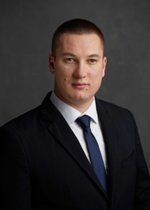
Boško
Matović
PhD
BOŠKO MATOVIĆ obtained all his academic qualifications at the at the University of Novi Sad, Faculty of Technical Sciences (BSc, MSc and PhD in Traffic Engineering). He is currently Assistant Professor and Head of Road Traffic Engineering Study Program at the University of Montenegro, Faculty of Mechanical Engineering, where he teaches courses on Traffic Safety and Transport Planning. He also teaches several courses related to road safety at the University of Novi Sad, Faculty of Technical Sciences. His main lines of research are human behaviour and traffic safety, as well as spatial analysis of road crashes. Since 2012 he has participated in numerous national projects supported by the Road Traffic Safety Agency of the Republic of Serbia, City of Belgrade, City of Novi Sad, etc. He has participated in European projects like TRAFSAF (Improving the Traffic Safety in the Western Balkan Countries through Curriculum Innovation and Development of Undergraduate and Master Studies). He has published articles in several international academic journals, such as Accident Analysis and Prevention, Traffic Injury Prevention or Journal of Safety Research. He is member of the scientific committee of the several international conferences.
List of relevant publications:
Jovanović, D., Šraml, M., Matović, B., & Mićić, S. (2017). An examination of the construct and predictive validity of the self-reported speeding behavior model. Accident Analysis & Prevention, 99, 66-76.
Pljakić, M., Jovanović, D., Matović, B., & Mićić, S. (2019). Macro-level accident modeling in Novi Sad: a spatial regression approach. Accident Analysis & Prevention, 132, 105259.
Matović, B., Jovanović, D., Pljakić, M., & Stanojević, P. (2020). Driving anger and factors related to aggressive driving among Serbian drivers. Traffic Injury Prevention, 1-5.
Matović, B., Jovanović, D., Pljakić, M., Bačkalić, S., & Jakšić, D. (2020). The influence of driving anger on truck drivers’ speeding behavior in Serbia: the evidence from naturalistic global positioning system driving data. Traffic Injury Prevention, 1-6.
Pljakić, M., Jovanović, D., & Matović, B. (2022). The influence of traffic-infrastructure factors on pedestrian accidents at the macro-level: The geographically weighted regression approach. Journal of Safety Research, S0022437522001359. https://doi.org/10.1016/j.jsr.2022.08.021
Stanojević, P., Lajunen, T., Jakšić, D., Jovanović, D., & Matović, B. (2022). Effectiveness of implementing a Graduated Driver Licensing (GDL) law among young Serbian drivers. Journal of Safety Research. https://doi.org/10.1016/j.jsr.2022.09.008
Research gate: https://www.researchgate.net/profile/Bosko-Matovic
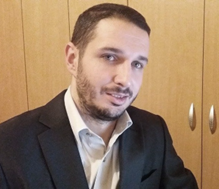
Marko
Veličković
PhD
MARKO VELIČKOVIĆ, PhD, is a Teaching Assistant at the Faculty of Technical Sciences in Novi Sad (Serbia) where he has been since 2012. He received his PhD in 2020 under the title Modelling of external costs in goods distribution systems in urban areas. He has more than 10 years of teaching and supervising undergraduate- and master-level students in Transportation and Logistics, in four courses: Reverse and Green Logistics, Freight Forwarding, Transport and Logistics Properties of Goods, and Freight Forwarding in Postal Operations. His research interests focus on several fields: City Logistics; Green Logistics; Assessment and Reduction of the Transportation Environmental Impact; Assessment and Modelling of Transportation External Costs; Reverse Logistics; Freight-forwarding Tasks and Assignments, and similar. In addition, he is a licensed Dangerous Goods Safety Advisor.
In his research career, he published more than 30 research papers in journals and conferences, five of which are published in international journal papers with approximately 70 citations on Google Scholar. He participated in the project of the Ministry of Education, Science and Technological Development of the Republic of Serbia under the title Development and application of optimization methods in the design of supply and distribution chains in the design of a distribution centre for large-scale production logistic support (no. TR36030). He was also a participant in the COST project called SUB-URBAN (no. TU1206) and the Dangerous goods transportation study for NIS NAFTAGAS. On the ERASMUS+ exchange programs, he participated as a teaching staff as well as a PhD student at many European Universities (Polytechnic University of Bari, Italy; University of St. Kliment Ohridski, North Macedonia; University of Maribor, Slovenia). He is a member of scientific and professional organizations (IEEE - Institute of Electrical and Electronics Engineers; WCTRS - World Conference on Transport Research Society).
LinkedIn: https://www.linkedin.com/in/marko-veli%C4%8Dkovi%C4%87-phd-53069152

